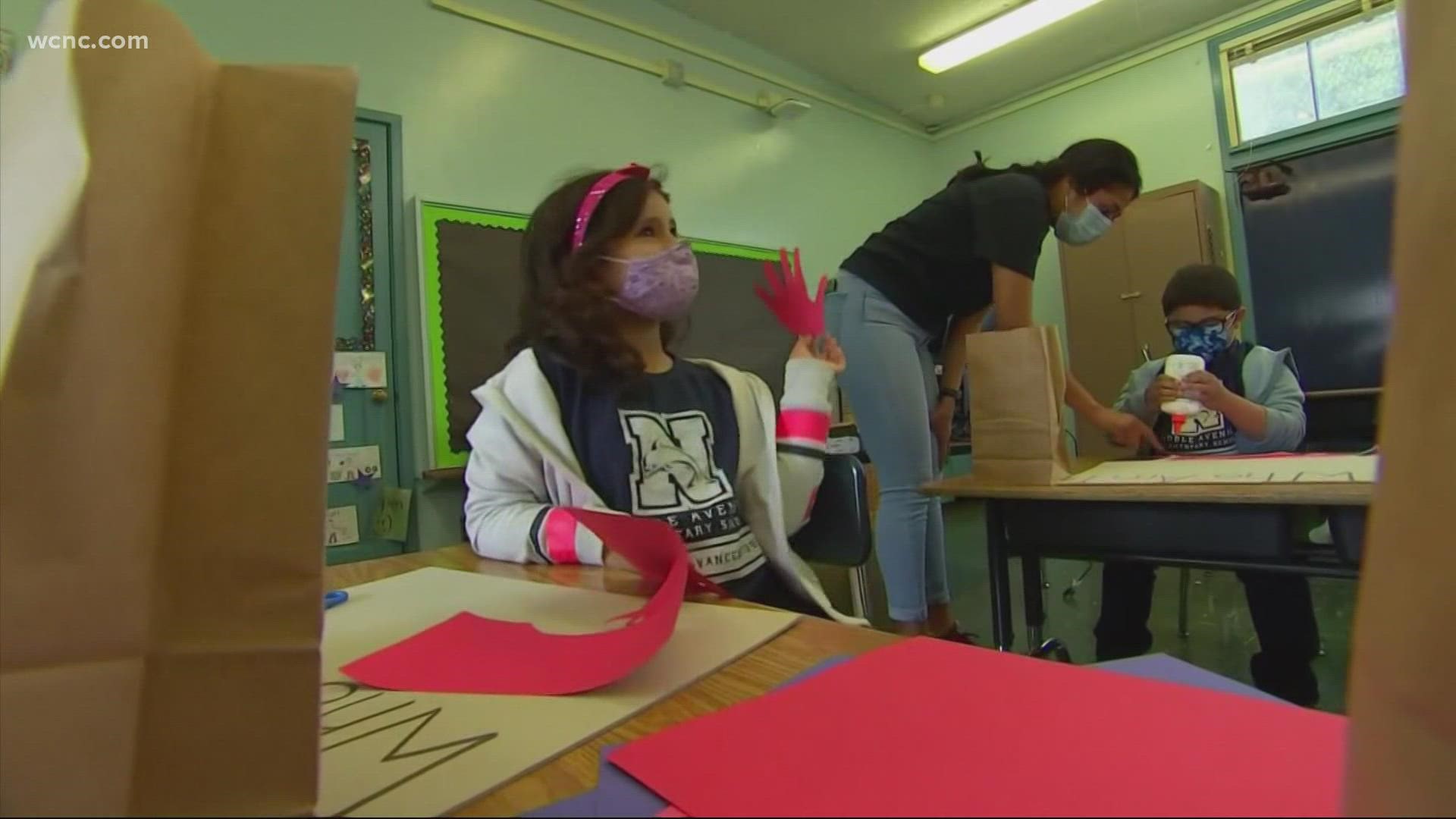CHARLOTTE, N.C. — Summer is winding down and students, families and teachers are preparing to head back to the classroom. The big question looming over many is if students and teachers should be masking up.
Most districts in the area are making masks optional, but CMS, Watagua and Anson County Schools, Hickory Public Schools and Kannapolis City Schools are requiring them.
Their research shows masking works. They found when there was universal masking, COVID-19 didn't spread as much in the classroom. It made in-person learning possible and safe.
Right now, hospitals are filling, and cases are going back up, so they suggest masks stay on.
RELATED: 'We feel this is largely preventable' | NC experiences largest single day jump in ICU admissions
Last school year, the online learning struggle was real. Many students wanted to be in person and experts say the classroom is the best place for them to learn. But, for it to be the safest place too, Duke Health researchers say they'll have to pack a key school supply.
“If you want to prevent COVID transmission at your schools, then it's masking until we have sufficiently high vaccination,” Dr. Danny Benjamin with Duke Health said.
Vaccination is the best way to build immunity he said, but most school-age children aren't eligible to get a shot yet. From March to June 2021, the ABC Science Collaborative collected data from 100 school districts and 14 charter schools in North Carolina. At the time, universal masking was mandated.
“Over the last year, we saw that in the mask on mask environment, so a masked person who was infected and a masked person who came into contact with that infected person, the risk in school for infection was less than 1%,” Dr. Kanecia Zimmerman with the Duke University School of Medicine said.
Benjamin and Zimmerman were part of the ABC Science Collaborative and conducted the research.
With the more contagious delta variant spreading, doctors are concerned unmasked kids could suffer this upcoming year.
“Thousands of kids missed thousands of school days. If we do masking, we can keep kids in schools,” Zimmerman said. “The alternative to not having masks is one increased risk for transmission but two, if you are a close contact you have to stay out of school for 10 days.”
The researchers also found that if students and teachers were masked, there wasn't much of a difference in COVID-19 spread in schools with three feet of social distancing and those that were doing six feet. The two wrote a New York Times opinion piece on their research.

